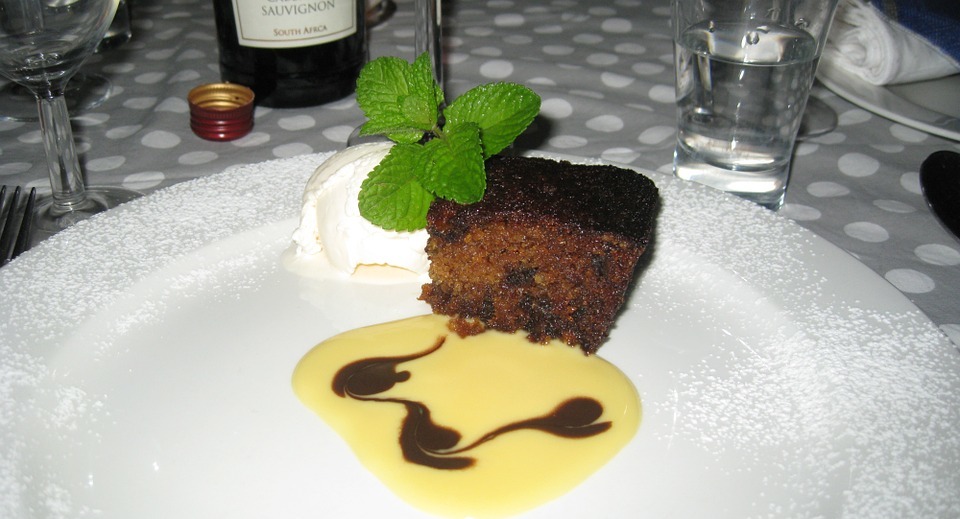This article delves into the complex relationship between rabbits and mint leaves, providing a comprehensive guide to help you make informed decisions about your bunny's diet. We'll explore the nutritional value of mint, its potential risks for rabbits, and offer safe ways to introduce it, along with delicious alternatives.
Part 1: Understanding the Nutritional Value of Mint

1.1. Vitamins and Minerals
Mint leaves are a treasure trove of essential vitamins and minerals that contribute to overall health and wellbeing.
- Vitamin A: Crucial for maintaining healthy vision, a robust immune system, and radiant skin.
- Vitamin C: A powerful antioxidant that combats cell damage and supports immune function.
- Iron: Essential for oxygen transport throughout the body and red blood cell production.
- Calcium: Vital for building and maintaining strong bones and teeth, crucial for rabbits' constantly growing teeth.
- Potassium: Plays a crucial role in regulating blood pressure, muscle function, and nerve impulses.
- Magnesium: Supports muscle and nerve function, blood sugar control, and bone health.
1.2. Antioxidants and Phytochemicals
Mint boasts a wealth of antioxidants and phytochemicals that offer various health benefits.
- Menthol: Renowned for its cooling and soothing properties, often used to relieve congestion and headaches. It can also act as a natural anti-inflammatory.
- Rosmarinic Acid: Possesses potent anti-inflammatory and antioxidant properties, helping protect cells from damage.
- Linalool: A fragrant compound with potential calming and relaxing effects, often used in aromatherapy.
- Beta-Carotene: A precursor to vitamin A, offering additional antioxidant support.
Part 2: The Potential Risks of Mint for Rabbits

2.1. Digestive Upset
While mint can offer digestive benefits for humans, rabbits have more sensitive digestive systems.
- Diarrhoea: Mint can irritate the rabbit's delicate digestive tract, leading to loose stools, particularly if consumed in excessive amounts.
- Bloating: The menthol in mint can cause gas build-up in the rabbit's stomach, leading to discomfort and bloating.
- Changes in Gut Microbiota: Excessive mint intake can disrupt the balance of beneficial bacteria in the rabbit's gut, potentially leading to digestive issues.
2.2. Liver Problems
Excessive intake of mint leaves can potentially strain the rabbit's liver.
- Liver Toxicity: Certain compounds in mint, particularly in high concentrations, can be toxic to the liver, potentially causing damage over time.
2.3. Allergic Reactions
Some rabbits may be sensitive or allergic to mint, leading to various reactions.
- Skin Rash: A red, itchy rash may appear on the rabbit's skin, particularly after contact with mint leaves or products containing mint extracts.
- Sneezing: Mint's strong scent can irritate the rabbit's nasal passages, causing sneezing and discomfort.
- Itching: The rabbit may experience excessive itching, possibly due to an allergic reaction.
Part 3: Safe Ways to Introduce Mint to Your Rabbit
3.1. Start with Small Amounts
If you decide to offer mint to your rabbit, a gradual introduction is key to minimize the risk of digestive upset.
- Start with a Single Leaf: Begin by offering a single small leaf of fresh mint and observe your rabbit's reaction closely.
- Monitor for Signs of Discomfort: Watch for signs of digestive upset, such as diarrhoea, bloating, or changes in stool consistency.
- Increase Gradually: If your rabbit tolerates the first leaf well, you can gradually increase the amount over a few days, but always stay mindful of their individual response.
3.2. Fresh Mint vs. Dried Mint
Fresh mint is generally preferred over dried mint for rabbits.
- Fresh Mint: Offers a higher concentration of nutrients and a more appealing flavour for rabbits. However, always wash fresh mint thoroughly before offering it to your bunny.
- Dried Mint: Can be given occasionally, but in smaller quantities due to its higher concentration of compounds.
- Hay as the Base: Hay should form the foundation of a rabbit's diet, providing essential fibre for healthy digestion.
- Fresh Vegetables: Fresh vegetables should be offered daily, providing a variety of vitamins and minerals.
- Pellets for Added Nutrition: High-quality rabbit pellets can supplement their diet with additional nutrients.
- Mint as a Special Treat: Offer mint sparingly, only a few leaves per week to ensure they are not getting too much.
- Watch for Changes in Appetite: If your rabbit's appetite decreases or they show a reluctance to eat, it could be a sign of discomfort.
- Monitor Stool Consistency: Pay attention to changes in their droppings. Diarrhoea or constipation can indicate digestive issues.
- Observe Behaviour: Watch for any changes in behaviour, such as lethargy, restlessness, or unusual vocalizations.
- Moderation is Key: Peppermint can be safe for rabbits in small amounts, but moderation is crucial to prevent digestive issues.
- Slightly Safer Option: Spearmint is generally considered slightly safer for rabbits than peppermint, but still should be offered in moderation.
- Avoid Experimenting: It's generally recommended to stick to peppermint and spearmint when offering mint to rabbits. Other varieties might have different properties and could pose a higher risk.
- Vitamins A, C, and K: Parsley is a good source of vitamins A, C, and K, essential for healthy vision, immune function, and blood clotting.
- Antioxidants: Parsley contains antioxidants that help protect cells from damage.
- Unique Flavour: Cilantro offers a distinct, slightly peppery flavour that can add variety to a rabbit's diet.
- Nutritional Benefits: It provides vitamins, minerals, and antioxidants.
- Mild Flavour: Basil has a mild flavour that rabbits generally enjoy.
- Source of Vitamin K: It's a good source of vitamin K, crucial for blood clotting.
- Dill: Provides vitamins A, C, and K.
- Tarragon: Contains antioxidants and can aid digestion.
- Fennel: Offers digestive benefits and is rich in vitamin C.
3.3. Mint as a Treat
Mint should be a treat, not a staple food in a rabbit's diet.
3.4. Monitor Your Rabbit's Health
Careful observation is crucial after introducing any new food to your rabbit's diet.
Part 4: Types of Mint and Their Safety for Rabbits
4.1. Peppermint
Peppermint is a popular variety of mint with a strong, pungent aroma, often used in cooking and beverages.
4.2. Spearmint
Spearmint has a milder flavour than peppermint, often preferred for its refreshing taste.
4.3. Other Mint Varieties
While the safety of other mint varieties for rabbits is not extensively studied, it's best to err on the side of caution.
Part 5: Mint Alternatives for Rabbits
5.1. Parsley
Parsley is a safe and nutritious alternative to mint for rabbits, offering a wide range of vitamins and minerals.
5.2. Cilantro
Cilantro, also known as coriander, is another safe and flavorful option for rabbits.
5.3. Basil
Basil is a fragrant herb that can be given to rabbits in small amounts.
5.4. Other Safe Herbs
Other safe herbs for rabbits include:
Part 6: FAQs about Rabbits and Mint
6.1. Can Rabbits Eat Mint Every Day?
No, rabbits should not eat mint every day. It's best to offer it as a special treat, a few times a week at most.
6.2. Is Mint Toxic to Rabbits?
Mint itself is not toxic to rabbits, but excessive intake can cause digestive upset, bloating, and other problems.
6.3. Can Baby Rabbits Eat Mint?
Baby rabbits should not be given mint. Their digestive systems are still developing, and they are more susceptible to digestive issues.
6.4. What Happens if a Rabbit Eats Too Much Mint?
If a rabbit eats too much mint, they may experience diarrhoea, bloating, gas, and even allergic reactions.
6.5. Can I Give My Rabbit Mint Tea?
It's best to avoid giving your rabbit mint tea as it can be too strong and potentially harmful to their delicate digestive system.
6.6. Can Rabbits Eat Mint Chocolate Chips?
No, rabbits should not eat mint chocolate chips. Chocolate is toxic to rabbits and can be fatal.
6.7. How Long Can Mint Leaves Stay Fresh?
Fresh mint leaves can stay fresh for about a week in the refrigerator if stored properly in a sealed container. To keep them fresher for longer, you can also freeze them.
6.8. Are Mint Supplements Safe for Rabbits?
There are no commercially available mint supplements specifically formulated for rabbits. It's best to rely on fresh or dried mint as occasional treats.
Everyone is watching
-

Do Rabbits Lay Eggs? (The Surprising Truth)
OTHER TYPES OF PETSThis article will unravel the common misconception that rabbits lay eggs, exploring the fascinating world of r...
-

Can Rabbits Eat Grapes? A Guide to Safe Rabbit Treats
OTHER TYPES OF PETSThis comprehensive guide will explore the safety and suitability of grapes for rabbits, providing detailed inf...
-

What's a Group of Rabbits Called? (A Comprehensive Guide)
OTHER TYPES OF PETSThis article delves into the fascinating world of rabbits, exploring the various terms used to describe a grou...
-

Predators That Hunt Rabbits: A Guide to Natural Enemies
OTHER TYPES OF PETSI've always been fascinated by the circle of life, that delicate dance between predator and prey. Growing up ...
-

Are Rabbits Nocturnal Animals?
OTHER TYPES OF PETSThe question of whether rabbits are nocturnal animals is a fascinating one, with a surprisingly complex answer...
